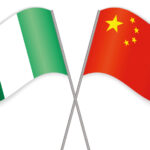The International Day for the Eradication of Poverty, observed on October 17 every year, provides an opportunity to reflect on the plight of the poor, marginalised and vulnerable populations around the world.
In 2024, this day holds special significance for Nigeria as the country faces severe economic challenges, including skyrocketing inflation, widespread unemployment, and worsening insecurity under President Bola Ahmed Tinubu’s administration.
Nigeria is home to one of the world’s largest populations of people living in extreme poverty. As of 2024, over 40 per cent of the population lives on less than $1.90 a day, according to the World Bank estimates. This situation has been worsened by the removal of the fuel subsidy in May 2023, which led to a sharp rise in transportation and food costs, plunging millions of Nigerians into hardship.
President Tinubu’s policies, aimed at addressing long-standing structural challenges, have had immediate harsh effects on the already strained livelihoods of many.
- Tron & Cosmos Price Recovery Finds No Takers — Whales Join BlockDAG Presale Dash to $100M
- Shettima heads for Sweden as Nigerians await Tinubu’s return
The reforms, including attempts to stabilize the naira, cut public debt, and revitalize industries, are yet to yield visible results for the most vulnerable in society. Instead, the cost-of-living crisis has worsened, with inflation reaching over 25%, making necessities unaffordable for many.
For many Nigerians, poverty encompasses not just a lack of income, but also limited access to basic services like healthcare, education, and clean water. The strain on these essential services is becoming more evident as more families can no longer afford medical care, education for their children, or even daily meals. Hospitals are overwhelmed, schools are underfunded, and many rural communities lack adequate infrastructure.
In addition to these challenges, insecurity across northern Nigeria and parts of the South has displaced millions from their homes, leaving many without the means to support themselves.
The combination of poverty and insecurity creates a vicious cycle, as desperate communities become more vulnerable to crime, exploitation, and insurgent violence.
While the government under Tinubu has initiated measures to address the economic crisis, such as rolling out cash transfers and promising affordable mass transportation programs, the speed and scale of these interventions are not enough to meet the urgent needs of millions of Nigerians living in poverty.
Corruption, bureaucratic inefficiencies, and poor implementation often hinder these initiatives from reaching those who need them the most.
There is a growing sentiment among many Nigerians that more direct and impactful interventions are needed. Social safety nets, rural development programs, job creation schemes, and targeted support for small and medium-sized enterprises are necessary to create sustainable solutions for the country’s poor.
Additionally, addressing systemic corruption remains key to ensuring that funds allocated for poverty alleviation are used for their intended purposes.
In the face of these overwhelming challenges, civil society organizations, faith-based groups, and international development agencies have continued to play a pivotal role in supporting vulnerable populations. They provide relief in the form of food aid, health services, and educational support, often stepping in when the government is unable to meet the needs of the people.
On this International Day for the Eradication of Poverty, there is an urgent call for greater collaboration between the government, civil society, and the private sector to address the root causes of poverty in Nigeria. This requires not just short-term relief but long-term strategies that empower individuals, support entrepreneurship, and build resilient communities.
As Nigeria commemorates the International Day for the Eradication of Poverty in 2024, it is clear that there is no single solution to the complex and deep-rooted issue of poverty in the country. However, the government must take immediate and strategic actions to ease the burden on its citizens. This includes investing in education, healthcare, and infrastructure, as well as fostering an enabling environment for job creation and economic growth.
Nigerians are known for their resilience, and this resilience must be met with policies that restore dignity, provide hope, and offer real opportunities for economic empowerment. Eradicating poverty in Nigeria will require a collective effort and political will, but it is a goal that is not beyond reach.
On this important day, we must remember that eradicating poverty is not just about statistics or policies—it is about improving the lives of millions of Nigerians who deserve the chance to live with dignity, security, and opportunity.
Muhammad Tukur Mu’azu wrote from Yola, Adamawa State

 Join Daily Trust WhatsApp Community For Quick Access To News and Happenings Around You.
Join Daily Trust WhatsApp Community For Quick Access To News and Happenings Around You.


